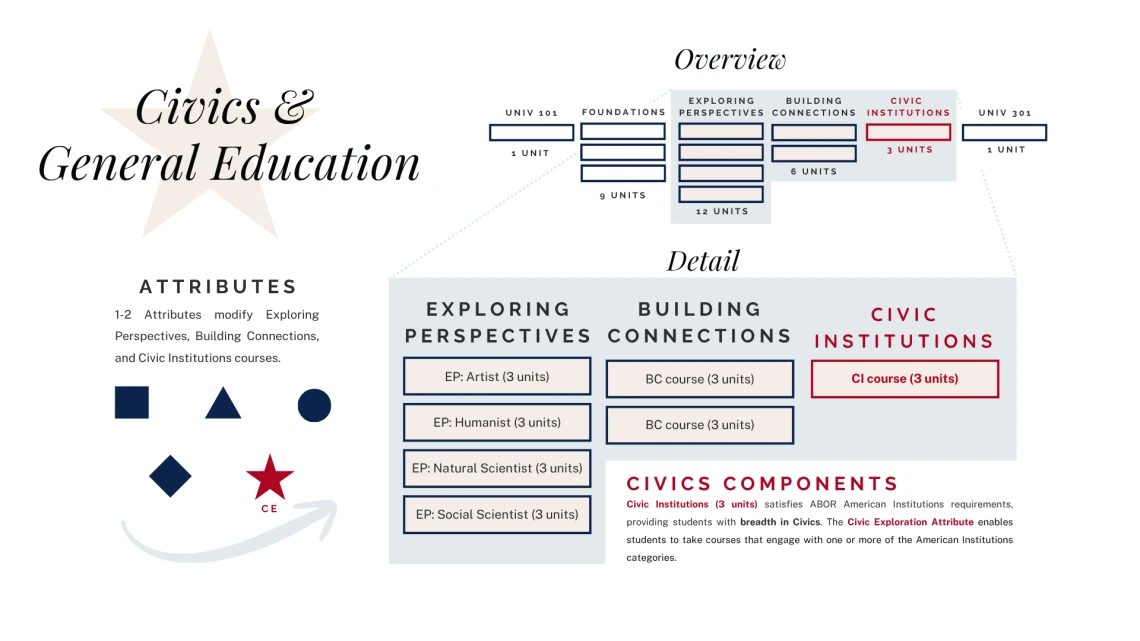Civics In Gen Ed
Gen Ed Civics Interest Form
Interested in submitting a course for the Civics Institutions curricular category or Civic Exploration Attribute? Complete this interest form to learn more.
Tri-University Civics Rubric
This rubric was developed by ASU, NAU, and UA to assess civic learning happening at Arizona's three four-year institutions. This rubric may be useful as you think through your civic learning activities for your Civic Institutions or Civic Exploration Attribute course!
Ready to Propose a Course?
We are here to support your course proposal preparation process. Enroll in the Quick Start mini-course to get started on your course proposal.
Incorporating Civics into the General Education Program
Inclusion of civics into the current Gen Ed program adjusts programmatic requirements by reducing one of the Building Connections course requirements (-3 units) and adding the new Civic Institutions curricular category (+3 units) to graduation requirements. The Civic Exploration Attribute will also be added to the current list of GE Attributes for incorporation into Exploring Perspectives and Building Connections courses.

Civics Implementation: A Phased Rollout
Given the complexity of the launching of these new curricular features, the civic elements will undergo a phased rollout. The first phase in Fall 2026 will feature a small cohort of existing Gen Ed courses, modified to include the new Civic Exploration Attribute. The second phase in Spring 2027 will feature the first Civic Institutions courses required for graduation. From there, the University-Wide General Education committee will be accepting proposals for Civic Institutions courses and Civic Exploration Attribute courses on a rolling basis.
Interested in proposing a course with the new civic features? Fill out this interest form to learn more.




